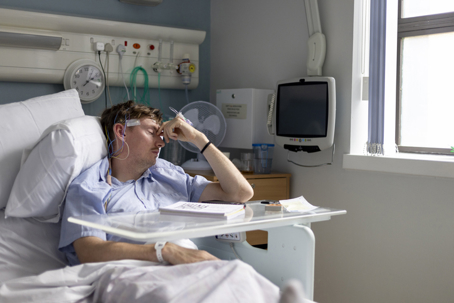Hospitals are meant to be places of healing, but when communication breaks down, the consequences can be devastating. Even a small misstep or overlooked detail can lead to serious injury in high—pressure medical environments. Whether it’s a missed diagnosis, a medication error, or a delayed treatment, poor communication among hospital staff is a leading cause of preventable harm to patients.
At Carpenter & Zuckerman, we’ve represented countless injured individuals and families because a hospital failed to communicate effectively. When lives are on the line, there is no room for silence, assumptions, or confusion.
The Risks of Communication Failures in Health Care
Medical care is a team effort. Doctors, nurses, specialists, technicians, and administrative staff must all work together, often under tight time constraints. In this environment, accurate and timely communication isn’t just helpful—it’s critical. Unfortunately, hospitals nationwide continue to face preventable errors caused by miscommunication.
Some common communication breakdowns include:
- Failure to update or share patient records across teams
- Inadequate handoffs between shifts or departments
- Misunderstood verbal orders
- Omitted or unclear documentation
- Delayed lab results or imaging reports not reaching the treating physician
- Nurses not informing doctors of changes in a patient’s condition.
When these breakdowns occur, the result can be a delayed diagnosis, incorrect medication dosage, wrong-site surgery, or a missed emergency. These aren’t just mistakes—they’re entirely preventable tragedies.
Examples of Preventable Harm Caused by Poor Communication
- Medication Errors
- When a nurse administers medication based on an outdated chart or a doctor writes an unclear dosage, the patient may receive the wrong drug—or too much of it. According to studies, thousands of patients are injured or killed each year due to communication-related medication errors.
- Missed or Delayed Diagnoses
- Critical test results may sit unreviewed because a specialist wasn’t informed, or a handoff between emergency room staff and inpatient teams didn’t include all necessary details. These delays can mean the difference between life and death, especially for conditions like stroke, sepsis, or internal bleeding.
- Inadequate Post-Operative Monitoring
- If nurses fail to report concerning changes in vital signs after surgery—or if doctors fail to follow up on these reports—the patient may suffer cardiac arrest, respiratory failure, or infection complications that go unchecked.
A timely conversation or clear documentation could have changed the outcome in all these cases.
Why Hospitals Must Be Held Accountable
Hospitals have protocols and systems designed to prevent these failures. Electronic health records, standardized handoff procedures, and chain-of-command reporting structures are meant to reduce miscommunication. However, when institutions fail to follow these standards or train their staff adequately, they put patients at risk.
Legally, if a hospital’s communication failure results in patient harm, that may be grounds for a medical malpractice claim. To succeed in these cases, attorneys must demonstrate that the hospital or its staff failed to meet the standard of care and that failure directly caused the injury or death.
At Carpenter & Zuckerman, we work with medical experts to examine hospital records, timelines, and communication logs. We know how to identify breakdowns and when they should have been prevented.
What You Can Do If You Suspect a Hospital’s Communication Failure Caused Harm
If you or a loved one was injured in a hospital and you believe miscommunication played a role, it’s important to act quickly:
- Request copies of all medical records, including nurses’ notes and shift change reports.
- Document everything you remember about the care and the communication you witnessed.
- Seek legal counsel with experience in hospital negligence cases.
Seattle Medical Malpractice Lawyers
Carpenter & Zuckerman is here to help. Our team has decades of experience handling complex medical malpractice cases, including those involving hospital communication failures. We understand the systems that should be in place and what happens when they break down.
If you believe poor communication in a hospital caused your injury or your loved one’s death, contact us today for a free consultation. We’ll review your case, explain your options, and fight for the accountability and compensation you deserve. You pay nothing unless we win.

